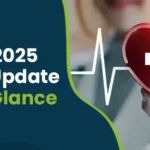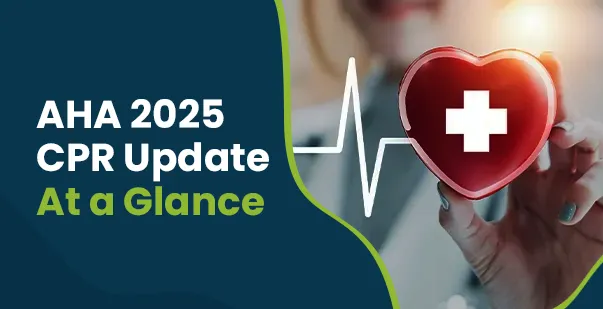Heart disease can be dangerous if not treated on time. This life-threatening condition has a lot of facts and statistics. The statistics mainly show how this heart condition affects millions of people all around the world.
Every year, 605,000 Americans encounter a heart attack for the first time. This article will explore the risks, facts and other heart attack facts and statistics of heart disease and the best ways to prevent these by leading a healthy life.
Who Are At Risk of Heart Attacks?
According to the Center of Disease Control And Prevention (CDC), every year, the US witnesses more than 702,880 deaths due to heart attacks in 2022. According to various government studies, around 805,000 people experience a heart attack each year. Timely treatment can significantly improve survival rates, but many factors increase the risk of heart attacksHeart disease statistics on various government studies show that every year 805,000 suffer from heart attack. With immediate treatment heart attack survival rate can increase. But, there are a lot of factors that put a person at risk.
- People suffering from high cholesterol
- Aging
- Tobacco and alcohol
- Unhealthy diet
- High blood pressure
- Diabetes
- Hypertension
- Obesity
These are the risks that make people more vulnerable to heart attacks. Due to stress and hypertension, chances of heart attack in your 20s are also increasing.
What Are the Primary Heart Attack Facts & Statistics of Heart Diseases?
The most common type of heart disease in America is coronary artery disease. This condition is blockage of the arteries that supply blood to the heart. According to 2017 heart disease statistics, more than 18 million under the age of 20s suffered from coronary artery disease.
Many studies show that women suffer more than men when it comes to heart diseases. If a woman suffers from a heart attack, 50% of women are likely to die, or develop a heart disease or may suffer from a stroke as well. This may happen because of the misdiagnosis of the condition. Many women are likely to ignore the early signs of heart attack.
Some of the common signs of heart attack that one can misinterpret are:
- Discomfort and chest pain
- Pain the arm, neck and upper stomach
- Cold sweats and lightheadedness
- Nausea
- Shortness of breath
- Jaw pain or back pain
- Unusual fatigue
- Unexplained weight loss
- Heartburn
- Fainting of dizziness
- Sweating
- Anxiety
Read More: Hyperventilation: Causes, Treatments, and Prevention
What Are The Common Symptoms of Heart Diseases?
Understand different heart conditions in detail to learn more about the symptoms and act swiftly in case there is an emergency.
Coronary Heart Diseases
This is a blood vessel blockage that restricts a proper blood flow to the heart. Build of fats, cholesterol, and other substances can block the blood vessels. When the blood flow is reduced, chances of heart attack enhance. Some of the symptoms of this condition are:
- Chest related discomfort known as angina. A person can suffer from chest tightness, chest pain, and pressure.
- Pain in neck, jaw, upper belly
- Shortness of breath
- Coldness in the feet or arm. Numbness in the lower portion of the body
Arrhythmias Disease
This is a condition where the heart beats too fast or too slow. The disbalance in the heart’s rhythm can lead to heart failure. Symptoms are as follows:
- Dizziness
- Frequent fainting
- Fluttering in the chest
- Palpitation
- Racing heartbeat & slow heart beat
- Chest pain
Congenital Heart Defects
This is also a heart condition that disrupts the blood flow to the heart. However, this condition is usually present at birth and most common among children. Common symptoms that children often encounter are:
- Gray or blue skin
- Swelling around the eye area, feet or belly
- Shortness of breath during breastfeeding the infant
- Unknown weight loss
Cardiomyopathy
When the heart could not pump blood properly, the condition is known as cardiomyopathy. This can happen if there is any defective valve existing in the heart. The symptoms are:
- Dizziness or lightheadedness
- Feeling shortness of breath especially at night
- Swelling in feet and hands
- Rapid pounding or fluttering heartbeat
What Are The Potential Causes of Heart Disease?
The causes behind developing a heart disease are many. There can be underlying comorbid health issues or genetics or simply unhealthy lifestyle. Read on to understand the causes in detail.
Family History-
Family history or genetics play a pivotal role in case of getting heart disease. If your family members like your parents or grandparents have heart conditions, it increases your risk of having one. You may not be able to change your genetics. However, with proper knowledge of your family history and regular check-ups, diet, and lifestyle modifications, you can control the risk.
Other Health Conditions-
If you have diabetes, high blood pressure or depression, the chances of getting heart disease increases. Some of the heart disease statistics also show that adults with diabetes or hypertension tend to have heart attacks at a younger age.
Unhealthy Lifestyle-
This is one of the major contributing factors for heart conditions. If you are too much into calorie-rich meals, sugary drinks, tobacco, alcohol, processed food, salt, sodium, fried items etc, you are inviting adverse heart conditions. Moreover, an improper sleep cycle can also lead to heart attacks.
Are the Symptoms and Causes of Heart Disease Different For Men & Women?
Chest pain and discomfort are the two major symptoms of heart attack. However, some of the symptoms are different. Let us find out the symptoms.
Common symptoms for both men and women
- Jaw pain
- Neck pain
- Heaviness in chest
- Pressure and tightness
Symptoms Women Face More-
- Nausea and vomiting
- Shoulder pain and neck pain
- Cold feet and sweat
- Faiting
- Shortness of breath
It has been found that the causes for heart disease among women are also different. Women can suffer from different comorbid diseases apart from diabetes or hypertension. Some of those diseases are:
- Chronic obstructive pulmonary disease (COPD)
- Autoimmune disease
- Kidney Failure
- Polycystic Ovaries
- Breast cancer
- Few mental health conditions
Read More- Pulse vs. Heart Rate: A Comprehensive Guide
What Is the Survival Rate of Heart Attacks by Age?
Younger people have a higher chance of survival than older people. However, the survival rate of heart attacks by age has varied opinions in different studies. Survival rates are highest among:
- People in the age group of 25-30
- Moderate for people of 55-60 years of age
- Lowest for people above 80
However, some of the heart attack facts also say that there is a low survival rate among the young people as well. This might be because of the growing stress and anxiety among the generation. These continuous studies will help medical professionals to understand how to deal with heart diseases more profoundly.
Common FAQs About Heart Diseases
Can I Suffer From a Heart Attack If I Lead a Healthy Life?
A healthy lifestyle will reduce your chances of getting a heart disease. However, it does not work the same for every person. In some instances, a person with perfect health can also suffer from a heart attack.
Is There Any Way to Prevent Heart Disease?
With few lifestyle changes, healthy eating habits and more you can definitely reduce the chances of heart disease. However, there is no 100% prevention from such conditions.
Can Heart Disease Be Cured Entirely?
Yes, heart conditions can be treated with medicines, or surgeries. However, a lifestyle change is required to prevent it from coming back again.
Know Your Heart Better
Heart diseases and heart attacks are one of the common reasons of death especially for the US citizens. It is essential to understand the symptoms like chest pain, dizziness, tightness, shortness of breath and get tested. Proper and healthy lifestyle can prevent such heart conditions. However, a lot of heart attack facts show that there is no prevention to such diseases if you have a family history.









